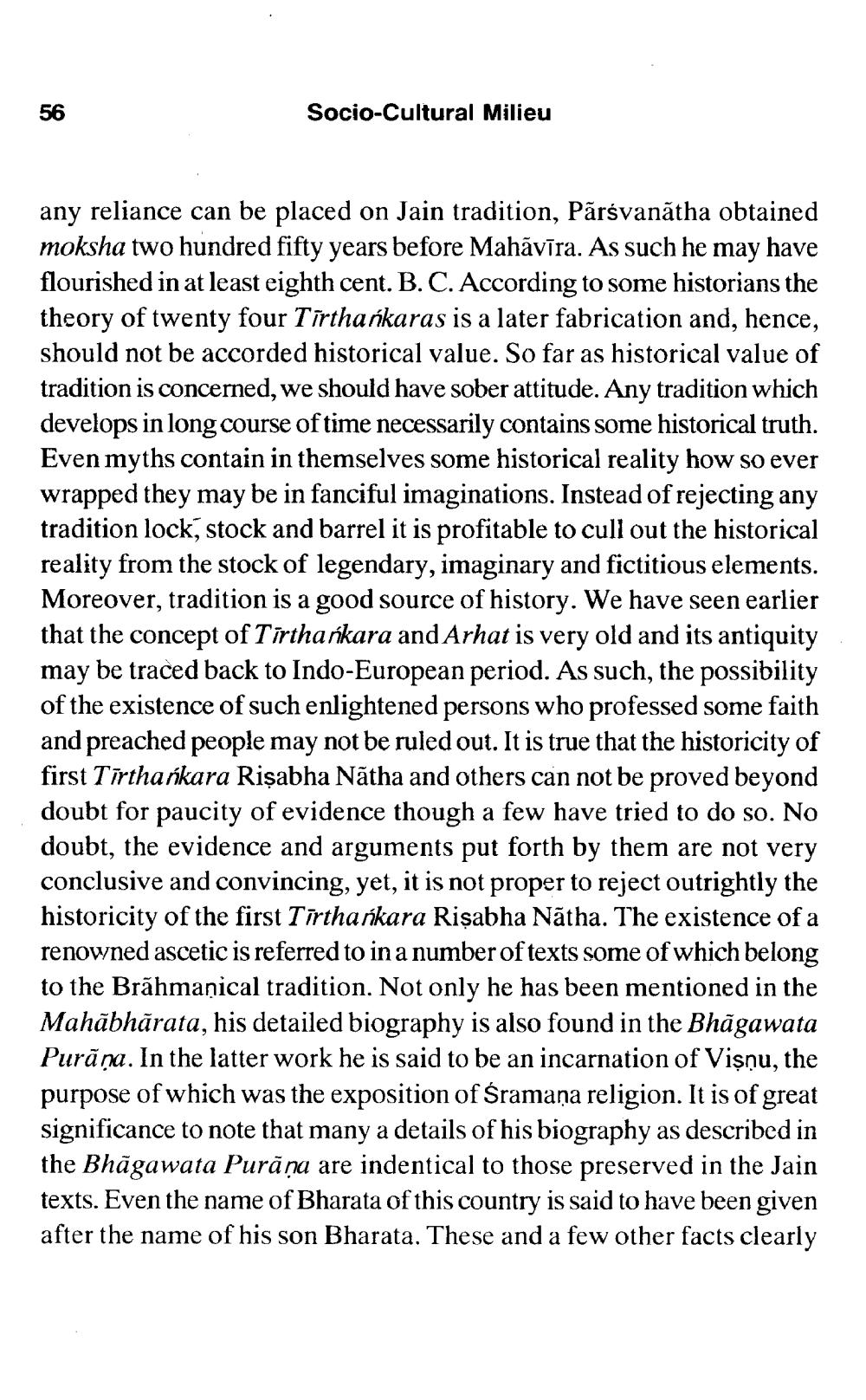________________
56
Socio-Cultural Milieu
any reliance can be placed on Jain tradition, Parsvanatha obtained moksha two hundred fifty years before Mahāvīra. As such he may have flourished in at least eighth cent. B. C. According to some historians the theory of twenty four Tirthankaras is a later fabrication and, hence, should not be accorded historical value. So far as historical value of tradition is concerned, we should have sober attitude. Any tradition which develops in long course of time necessarily contains some historical truth. Even myths contain in themselves some historical reality how so ever wrapped they may be in fanciful imaginations. Instead of rejecting any tradition lock, stock and barrel it is profitable to cull out the historical reality from the stock of legendary, imaginary and fictitious elements. Moreover, tradition is a good source of history. We have seen earlier that the concept of Tīrthankara and Arhat is very old and its antiquity may be traced back to Indo-European period. As such, the possibility of the existence of such enlightened persons who professed some faith and preached people may not be ruled out. It is true that the historicity of first Tirthankara Risabha Natha and others can not be proved beyond doubt for paucity of evidence though a few have tried to do so. No doubt, the evidence and arguments put forth by them are not very conclusive and convincing, yet, it is not proper to reject outrightly the historicity of the first Tirthankara Riṣabha Natha. The existence of a renowned ascetic is referred to in a number of texts some of which belong to the Brahmaṇical tradition. Not only he has been mentioned in the Mahabharata, his detailed biography is also found in the Bhagawata Purana. In the latter work he is said to be an incarnation of Viṣṇu, the purpose of which was the exposition of Śramana religion. It is of great significance to note that many a details of his biography as described in the Bhagawata Purāṇa are indentical to those preserved in the Jain texts. Even the name of Bharata of this country is said to have been given after the name of his son Bharata. These and a few other facts clearly




